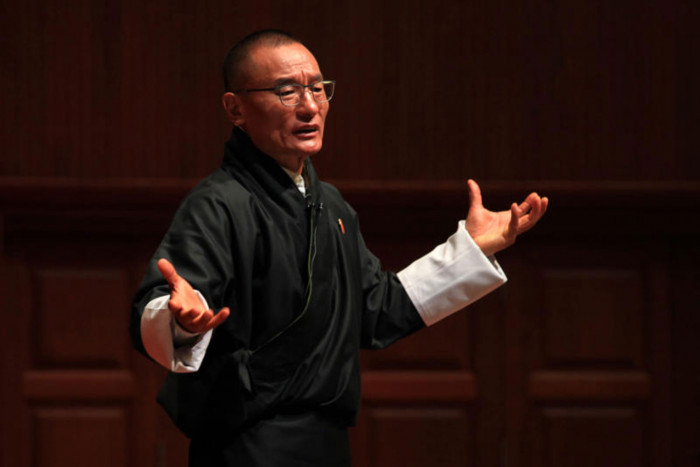The Himalayan kingdom funds sustainable development through a hefty daily fee it charges visitors.
Release date: June 27, 2024 18:05
small
Moderate
big

Bhutan’s Prime Minister Tshering Tobgay delivered a special speech at the Chulalongkorn University Conference Room on Thursday. (Photo: Apichat Jinakul)
Bhutan’s Prime Minister Tshering Tobgay said on Thursday that Bhutan and Thailand could cooperate in promoting sustainable tourism.
He made the remarks at the “Wise Leadership” event organised by the Royal Bhutanese Embassy, the Thai Ministry of Foreign Affairs and the Institute of Asian Studies at Chulalongkorn University.
Tobgay was asked what Thailand could learn from Bhutan, a country world-renowned for its pristine nature and exemplary principles for sustainable tourism.
He said it would be difficult given the differences in their contexts (for example, Bhutan’s population is 700,000 compared to Thailand’s 67 million), but the two countries could cooperate by sharing knowledge and best practices.
Thailand also has a more diverse geographical topography compared to Bhutan, which is a mountainous country.
According to the Bhutan Tourism Board, 70 percent of the country is covered by forest, and more than a third of that is under ecological protection.
Defined as “responsible travel to natural areas and habitats that conserves the environment and respects the culture and traditions of the people”, ecotourism has been adopted by the Bhutanese government for the development of sustainable tourism.
Tobgay said the strict tourism tariff policy, known as the Sustainable Development Fee (SDF), also helps reinforce the country’s “high value, low volume” tourism principle and ensures exclusivity for quality visitors.
All travellers entering the Kingdom of Bhutan are required to pay a mandatory SDF fee, currently US$100 per day for adults and US$50 per day for children aged 6-12. This fee is paid directly to the Government and used to fund a range of long-term sustainable development projects to support the welfare and livelihoods of local people and stimulate the economy.
This includes free health care and education, and improved facilities and services in the tourism industry.
Tobgay said the fee is also a vital source of funding for forest conservation and maintaining the country’s carbon-neutral status.
“Though Thailand and Bhutan are different, it is important that we exchange knowledge and work together to move forward on the issue of sustainable tourism,” he added.

